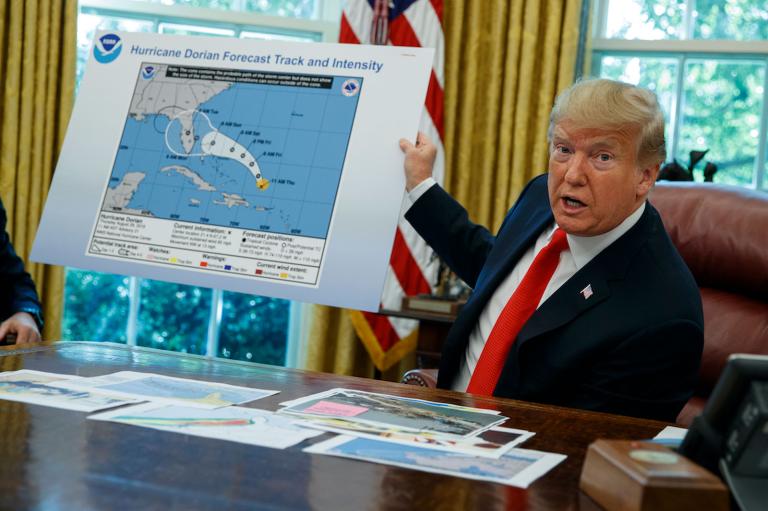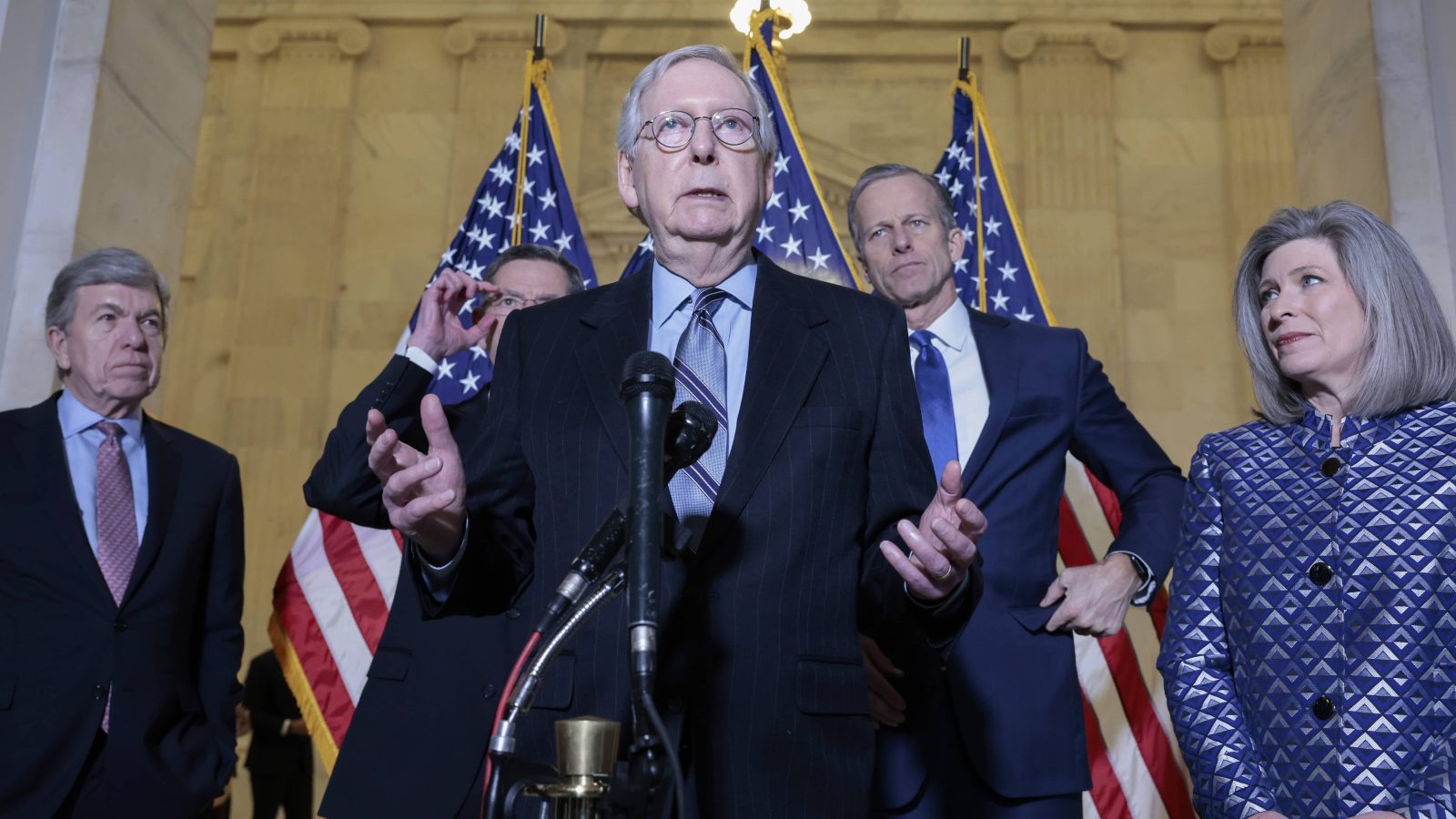Democrats are blowing the best shot they’ve had to pass a climate bill in a decade.
That opportunity lies in the Build Back Better Act, or BBB, a sweeping “soft infrastructure” bill that contains about half a trillion dollars in climate funding. Democrats hoped they could pass the bill via the budget reconciliation process — a Senate procedure that allows the majority party to circumvent minority party opposition and pass legislation that pertains to the budget with 50 votes instead of 60 votes. The bill hit a wall when Democratic Senator Joe Manchin announced that he opposes it. With even one member of their caucus opposed, Senate Democrats can’t move forward with Build Back Better or any other major agenda item on President Joe Biden’s long list of presidential priorities.
But Manchin isn’t against all of BBB, only certain parts of it. He hasn’t taken issue with the climate parts of the bill, which Democrats already watered down to appeal to his fossil fuel–friendly tastes. This week, Democratic leadership started thinking seriously about moving forward with BBB by breaking it up into pieces. “I’ve been talking to a number of my colleagues on the Hill,” Biden said at a press conference on Wednesday. “I think it’s clear that we would be able to get support for the $500 billion plus for energy and the environment.”
A funny thing happens when you separate out the $500 billion climate portion of the Build Back Better Act from the rest of the package: It starts to look a lot like the kind of climate plan Republicans say they support.
Even a few years ago, it would have been hard to imagine Republicans supporting a federal climate plan. The Republican party has eschewed climate action since the 1980s, when oil companies started lobbying Republican lawmakers to vote against climate legislation and making hefty financial contributions to the campaigns of politicians who ran on anti-environmental regulation platforms. But recently, some Republican politicians have realized that their hard line on climate change is alienating portions of their voter base, especially younger Republicans who are beginning to sound a lot like Democrats when it comes to this issue specifically. The physical impacts of climate change have become harder to ignore, and Republicans fear being left behind. “We should be a little nervous,” House Minority Leader Kevin McCarthy said at a political conference in 2019. Progressive Democrats in Congress whipped up a media and activist frenzy when they started touting the benefits of an economy-wide climate and justice plan called the Green New Deal earlier that year. What did Republicans have to tout? Nothing — lawmakers from their party were busy holding press conferences about why the existence of photosynthesis discredits climate change.
So some Republicans have been trying to show voters that they’ve turned a new leaf on climate change. They’ve stopped denying the reality of the issue and started to drum up conservative solutions to it instead, ones that they say focus exclusively on emissions — not the “laundry list” of progressive objectives Democrats want to accomplish. Republican Senator Mike Braun of Indiana serves as the co-chair of the Senate Conservative Climate Caucus, which was formed in 2019, and championed a green agriculture bill that passed the Senate last year. Senator Lisa Murkowski of Alaska introduced climate legislation focused on sequestering carbon dioxide in oceans and has been reaching across the aisle to fund clean energy research and development. A cadre of House Republicans unveiled a swath of climate-related bills in 2020.
There is clearly an appetite for modest climate action on the right that didn’t exist just a few years ago. What’s more, there’s actually quite a bit of overlap between Democrats’ climate plan in the BBB and Republicans’ preferred ways of fighting climate change. Democrats have been finessing the contours of their climate agenda for months, converting a transformative plan to decarbonize the nation’s power sector into a middle-of-the-road, don’t-rock-the-boat suite of incremental actions that jibe with Manchin’s centrist sensibilities. The bill contains $300 billion in clean energy tax credits, but those credits are technology neutral, so they can be applied toward nuclear energy, hydropower, and geothermal energy, all of which Republicans like because they say they’re more established than solar and wind power and have a proven track record of reliability. The bill also contains funding for capping abandoned oil wells, a method of cutting down on methane emissions that has been embraced in several Republican-led states, and money for advanced battery technology that looks similar to bills House Republicans recently introduced.
“Certainly on the policy, there’s nothing in the bill that is inherently partisan, and Republicans have supported some similar things at the state level,” said Matt Grossmann, professor of political science and public policy at Michigan State University, referring to the climate portion of the Build Back Better act.
Quillan Robinson, a conservative and director of government affairs at the free-market environmental group the American Conservation Coalition, agreed that there are areas of overlap.
“Republicans have pushed very hard against Build Back Better,” he said. “But in terms of some of the specific things in there, there are things Republicans and Democrats can agree on, absolutely,” Robinson added. “There’s probably a whole host of things from potentially clean energy tax credits to investment in things like geothermal that Republicans have and probably will continue to support.”
But even though Republicans might theoretically get behind the contents of the climate portion of the Build Back Better Act, that doesn’t mean they’ll be voting for a new version of the package anytime soon. Indeed, this week the New York Times asked all 50 Republican members of the Senate if they would support just the climate portions of the bill, and none of them said yes. That’s in part because the Build Back Better Act was never meant to be a bipartisan piece of legislation — Democrats aimed to pass it without Republicans via the budget reconciliation process. So Republicans, who were locked out of negotiations on this bill, aren’t going to be particularly keen to jump on board now and salvage what’s left of it.
Bob Inglis, a former Republican representative from South Carolina who lost his seat after he came out in support of a tax on carbon emissions, said some Republicans might be able to support “a free-standing bill that expands tax credits for wind, solar, batteries, geothermal and electric cars, that aids nuclear power plants at risk of premature closure and that incentivizes carbon capture and storage.” If Republicans and Democrats are able to come together on climate change, it will be for a separate, fully rebranded bill that includes Republicans from the beginning. “It would need to be billed as a new effort to do something rather than ‘we’re trying to do the climate parts of Build Back Better,” Grossmann said.
A spokesperson for Representative John Curtis, Republican from Utah, emphasized the nonviability of any legislation that resembles the Build Back Better Act in a comment to Grist. “We have had no input in BBB,” the spokesperson said, “but Congressman Curtis is working with his colleagues on bipartisan climate legislation.”
If Republicans do come to the table on climate change, it likely won’t be this Congress, because there’s little political incentive for the party to work with Democrats now. The 2022 midterm elections are rapidly approaching, and Republicans are favored to take back the House and possibly the Senate, too. “If you’re the party that stands the chance of gaining the majority, it doesn’t make sense to help the majority party do something when you can do it next Congress your way,” Grossmann said. In other words: Republicans’ hostility to the Democratic agenda is clearly stronger than their desire to take action to slow down climate change.
But Grossmann thinks it’s possible that some Republicans could be willing to work with Democrats in the next Congress. It’s happened before — Republicans and Democrats worked together in a divided Congress to pass the American Energy Innovation Act in 2020, a comprehensive energy bill. And 19 Republicans voted with Democrats to pass Biden’s $1.2 trillion infrastructure bill last fall. “It’s not like it’s some yesteryear period in which we’ve had bipartisan legislation; we had it quite recently,” Grossmann said. “Next year at this time, it could be the case that a gang of senators could move forward with a set of bipartisan energy proposals that would look not that much different from the ones in Build Back Better.”
In the interim, Grossmann hasn’t given up on the possibility of a smaller, Manchin-approved climate bill hitting the Senate floor. Such a bill would still bypass Republicans and get passed via a simple Democratic majority. “There’s a lot of agreement on the table and it would be sort of crazy for that agreement to not result in something,” he said. “Usually, when there’s enough agreement to pass something that’s better than the status quo, eventually you get to that agreement.” Whether Democrats are able to create and pass such a bill before the 2022 midterms remains to be seen. If they can’t, the success of a federal climate policy may depend on Republican lawmakers putting their votes where their mouths are.




